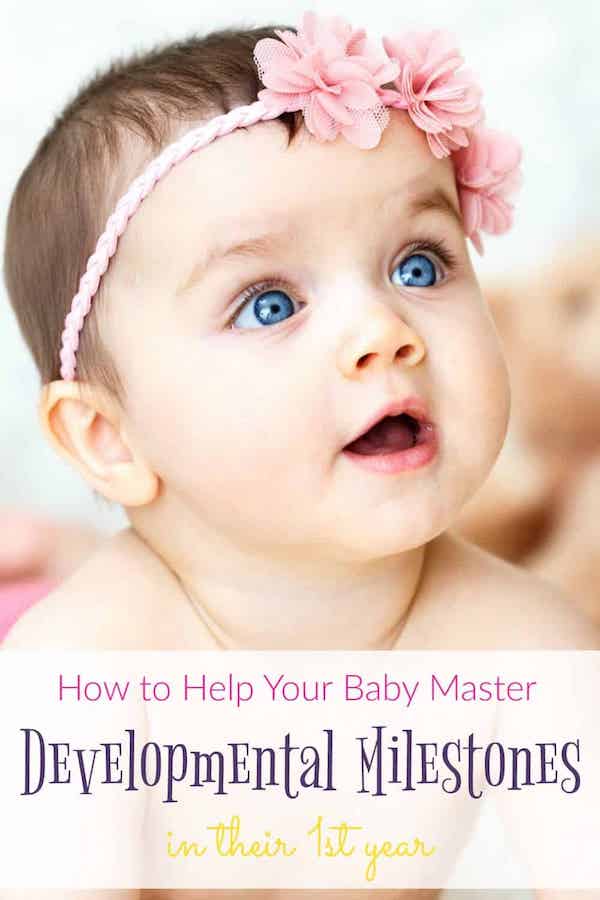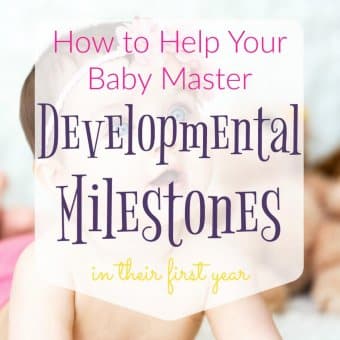In the first year of a child’s life there are so many different milestones that they achieve. You will find that some they do quite easily, but others take more time and will provide some frustration to your baby as they try and master it. Objects that are out of reach can be frustrating when still learning to crawl. Rolling one way and not being able to roll back is as well. There are things you can do to help your little one practice and achieve their developmental milestones so that frustration can be eased.

Rolling Over
Rolling is one of the first big physical milestones for our babies. They tend to master the skill of rolling between 4 to 6 months, though some babies will start earlier. Often babies don’t learn to roll both ways at the same time. You can help your baby with this by providing lots of tummy time. Clap and smile at your baby as they try to roll. Try guiding their arms and legs in the right position and roll them over. An incentive to get them rolling on their own can help – like a toy out of arms reach.
Babbling/Repeating Syllables/Early Stages of Talking
Learning to talk happens in stages. The earliest stage is cooing (around 3 or 4 months). At around 6 months your baby will start to form consonants and start babbling with intent. This means they say something in a way to elicit a reaction from you or to respond to you when you talk to them. The best way to encourage language is to talk to your baby. Tell them what you are doing as you both go about your day, talk to them about their toys and even ask them if this is the toy they want as you hand them one. If you notice your baby babbling with a poited finger, talk to them about what they are pointing to.
Crawling
Babies start to crawl somewhere between 6 and 9 months, but first you may notice some scooting as they attempt to learn how crawling works. Some babies will never do the up on all fours crawling though. Crawling just means a way to get from point A to point B. Some babies may wriggle on their tummies while others may do a commando crawl. All ways are completely normal. The best way to encourage learning to crawl is by putting desired objects out of reach. You may find your baby gets frustrated sometimes when he can’t reach that object yet, but if you always grab it for him, he won’t have the motivation to try and learn to crawl to get it.
Walking
Not all babies will master walking straight away. At 1, some babies will only be pulling up on furniture and cruising. The first step to walking is to be able to pull up to stand. This is how babies learn how to balance their bodies. We can help babies do this by pulling them up whilst holding their hands. The next stage is cruising where babies use walls or furniture to hold on to whilst getting around. You can help this stage by encouraging your baby to sometimes let go of that wall or furniture.
The biggest skill a baby needs to learn to be able to walk is balance. You can make balancing a fun game by helping her stand up. Then count how long she can stay up before falling down. Or at this age lots of smiles and cheers will encourage more attempts. And of course when your baby makes those exciting first steps lots of cheers, hugs and encouragement will help her keep trying.
The most important advice I can provide for helping your child master any milestone is to have fun. Don’t worry if another baby masters skills at a different rate to your baby. Every baby is unique and will master them at their own pace. However if you do get worried, do not hesitate to mention it to your pediatrician at your baby’s next appointment. They will advise if there is a reason to worry, or to give your baby a bit longer to get there.





